If you fill out the "Forgot Password" form but don't get an email to reset your password within 5-10 minutes, please email logistics@ire.org for assistance.
(Feb. 21, 2025) – On Feb. 22, 1975, a group of intrepid journalists got together to discuss the emerging world of investigative reporting. Up until then, the few investigative journalists were mostly “lone wolves” in their newsrooms, working on their own and often in fierce competition.
The soon-to-be founders of IRE wondered: What if we help each other instead?
That visionary thought 50 years ago has blossomed into a powerful, supportive community of nearly 5,000 journalists from around the world, today the largest journalist organization based in the United States.
“There is no better time to celebrate investigative journalism than now,” said Executive Director Diana R. Fuentes. “In the face of attacks from many quarters, we are called upon to rally together and keep speaking truth to power and fighting for the people’s right to know. The work our members do every day is truly inspiring. Long live IRE!”
Fifty years of IRE. This milestone is special.
It means that for half a century – through decades of shifting politics and policies, advancements in tools and technology, racial reckonings, financial hardships, industry turmoil, busy news cycles and so much more – our members have stayed true to the belief that journalism can help us all live in a better, more informed world.
Year after year, thousands of journalists have packed into conferences and workshops to share their secrets, to commiserate and to gain inspiration and motivation.
“We are so proud of the storied history of IRE, but we also know that the work continues,” said Brian M. Rosenthal, an investigative reporter at The New York Times and president of the IRE Board of Directors. “This is a moment to celebrate, and to commit ourselves to continuing to carry the torch for the next 50 years, and beyond.”
To celebrate this historic milestone, we have exciting plans throughout 2025. See details below and join us!
On March 25, listen to IRE’s real OGs talk about our beginnings and their views of today and tomorrow. We are honored to welcome Len Downie Jr. and Ed DeLaney for this extraordinary online event. They both attended the original meeting of IRE in 1975, and they are still active in our community.
In conversation with Deb Nelson, a veteran IRE member herself and past president who won her first IRE Award in 1984, Downie and DeLaney will talk about the obstacles the group overcame to get IRE started, remembering the strife and the laughter, too; whether they thought we’d ever be where we are today; and where they see us going in the future.
Downie was at The Washington Post at the time, fresh from editing the Watergate stories that led to the resignation of President Nixon, and DeLaney was a lawyer who shepherded the creation of the new nonprofit IRE. Today, Downie is a professor at Arizona State University’s Walter Cronkite School of Journalism, and DeLaney is a Democratic legislator in the Indiana State House of Representatives.
This special event is free to all IRE members. Please register here.
The IRE Conference, set for June 19-22 in New Orleans, is our biggest event of the year, and it’s going to be extra special this year because of the anniversary. We’re thrilled to announce legendary journalist Jim Steele as the 2025 keynote speaker.
Steele was among the first members of IRE and has stayed active in the organization, serving as a mentor for countless young journalists and participating in dozens of conference sessions, among other roles.

“From my first IRE convention in Indianapolis in 1976 to countless other ones along the way across our land, I have believed in the work we all do and in the vital role IRE has played in advancing it,” Steele said in accepting the invitation. “It is a mission that continues and indeed is more crucial than ever.”
Steele will address conferees at the Awards Luncheon on Saturday, June 21.
A former contributing editor at Vanity Fair and editor at large at Time magazine, Steele and his longtime reporting partner, the late Don Barlett, won two Pulitzer prizes and dozens of other awards for their comprehensive data analysis and investigations into wide-ranging public issues including the Internal Revenue Service, federal housing programs, criminal justice, income inequality and nuclear waste, to name just a few. In 1972, the team worked with Philip Meyer, the pioneer in computer-assisted journalism, in using an early computer to analyze more than 1,000 Philadelphia crime cases. It was the largest CAR project of its time.
The reporting duo also wrote nine books, two of which became New York Times bestsellers.
Steele teaches at Temple University and serves on the Board of Directors of the Fund for Investigative Journalism.
Now for something completely different at IRE25. To celebrate the anniversary, we are offering a smashing totally New Orleans-style event: A rocking dinner on a riverboat, cruising the mighty Mississippi!
This is a one-of-a-kind separate affair with tickets available only to those attending the conference and their families (and friends). It will take place the evening of Friday, June 20 — after the day’s conference sessions end — and tickets are $95 each. All proceeds will go to our 50th anniversary fund to support our efforts to expand training in the future.
The two-hour cruise will include live music, appetizers, dinner, dessert and an open bar. You won’t want to miss it!
Once you've registered for the conference, you can purchase tickets for the cruise here.
This is just some of what we’re doing to celebrate our birthday! Already we’re offering an exceptional membership deal for retired journalists who are no longer working full time: $50 for the 50th! Retirees can join or renew in 2025 and get a one-year membership for just $50 instead of $75.
Our 50th Anniversary Task Force is cooking up more engaging and fun-filled experiences, in person and online. Stay alert for upcoming announcements as we roll them out. If you haven’t already, sign up for the Quick Hits newsletter to be the first to know the latest IRE news and updates.
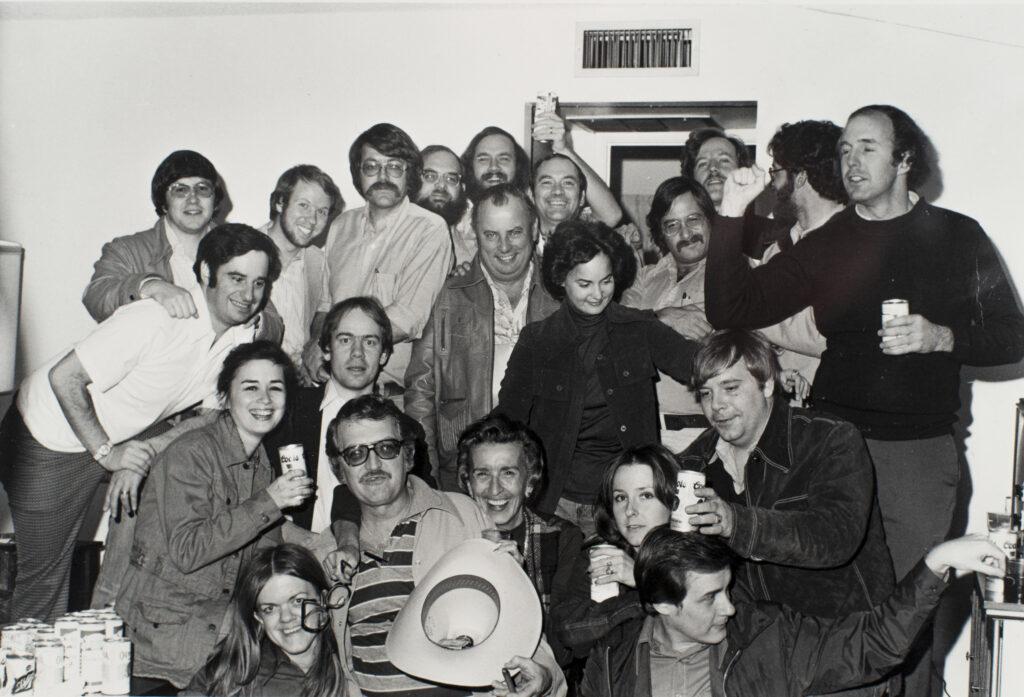

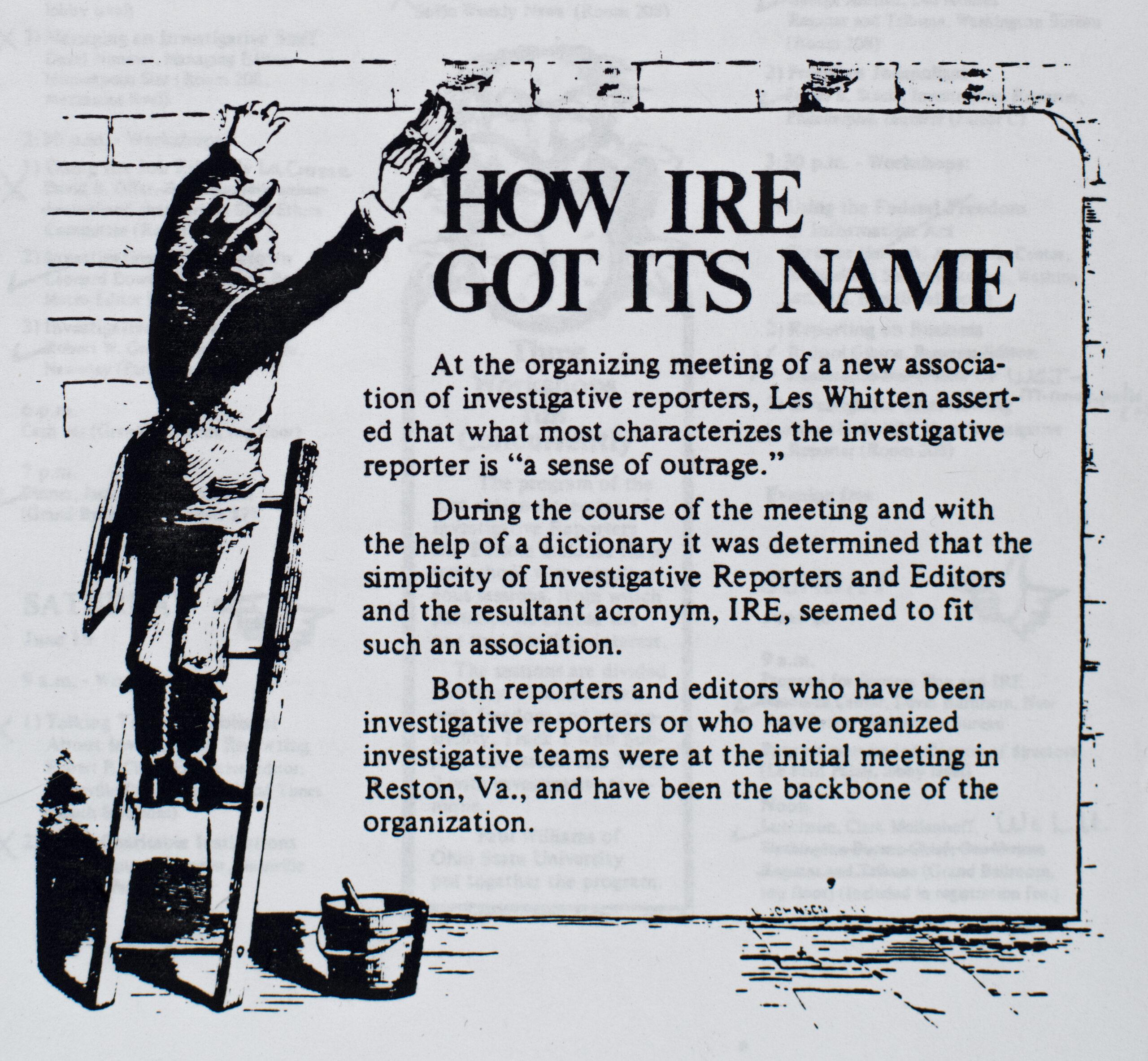
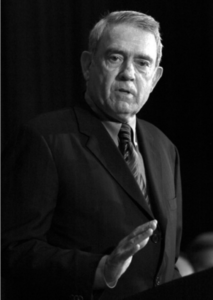
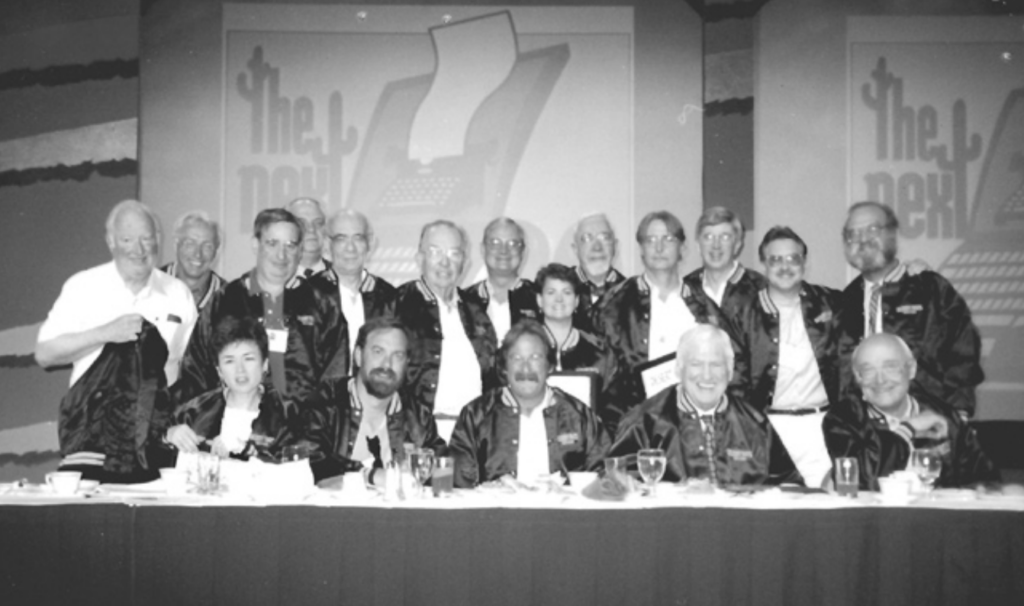
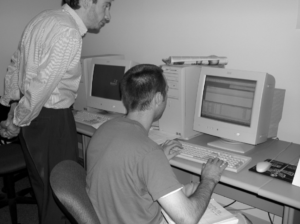
(Feb. 18, 2025) — Longtime IRE member Tom Koch is an accomplished journalist and author, an expert in mapping, data analysis, elder care, medical ethics and so much more.
But in the 1980s, an unsafe work environment threatened to derail that promising career.
“They wanted to put me on permanent disability leave because I couldn't use their computers,” Koch said. “But the problem wasn’t me, it was the computers.”
He successfully fought back, winning concessions that set the first standard for ergonomics within newsrooms in North America.
Read about Koch’s inspiring life, how he went on to cover the U.S. Olympics, wrote more than a dozen books, and how today he’s still publishing and helping fellow journalists cover public health and disability issues in a profile featured at the new digital home for The IRE Journal.
His story is just one of the features in the new version of The Journal, the official publication of Investigative Reporters and Editors, the largest professional journalist organization in the nation. The online publication includes the same in-depth stories and regular departments previously available in the print version, plus new audio and interactive features — including the latest IRE Radio Podcast episodes, recent newsletters and comprehensive content relevant to journalists today.
IRE announced the new digital format in late 2024, designed to expand accessibility and provide members with a more dynamic, interactive experience.
Members can access the online magazine after logging in at ire.org with their regular login and password. The Journal is under the Resources tab on the homepage.
Check back for new stories published regularly. Here are a few in the works:
We want your feedback: If you have an idea for a story, send us a pitch! We welcome any critical and constructive feedback as we strive to improve The IRE Journal. Submit your pitch or general feedback via this Google form, or send us a note by email at editorial@ire.org.
(February 6, 2025) — Investigative Reporters and Editors is pleased to announce the new Koch Continuum Grant in Public Health and Disability Investigative Reporting.
“We are enthusiastic about this major grant program, the largest in IRE’s portfolio,” said IRE Executive Director Diana R. Fuentes. “When budget cuts sweep newsrooms, all too often it’s specialized reporting that takes the hit. The Koch Continuum Grant is designed to boost coverage in the all-important areas of public health and disabilities.”
The program will award two $10,000 grants to journalists pursuing investigative reporting projects focused on public health issues or issues affecting people with disabilities. Grant recipients will also receive financial assistance to present the results of their reporting at the 2026 IRE Conference June 18-21, 2026 in Washington, D.C.
IRE is accepting proposals for the new grant through April 6, 11:59 p.m. ET.
The program is geared toward investigative reporting, so proposals could deal with issues raised by whistleblowers, ethical debates or deep-dive analysis of public records. A proposed project could also demonstrate the potential for ground-breaking legislation or showcase problems unnoticed by those in power. Projects using mapping and GIS are highly encouraged.
To be eligible for this grant, an applicant must meet IRE membership requirements and be a working freelance journalist or journalist working for a news outlet. Projects can be in any form that can be produced and published/aired within a year — print, TV, radio, film, online — for a U.S. and/or Canadian public audience. Grant winners will have until June 1, 2026 to publish/air their projects.
“There are many communities in our backyards that are disproportionately affected by health concerns and inadequate accommodations for disabilities that are frequently overlooked or flat-out ignored,” Fuentes said. “This grant can help enterprising journalists uncover failures that jeopardize safety and quality of life and shine a spotlight on issues that could spark much-needed change.”
This grant program was established through the generosity of a longtime IRE member who prefers to remain anonymous. A veteran journalist and author specializing in medical and public health coverage, his hope is this program will serve others in the area of work he pursued for 25 years.
For more information or to apply for the grant, visit the Koch grant page.
If you’d like to contribute to an IRE program or fellowship, please visit our donation page.
(Jan. 30, 2025) — For this month's IRE Radio Podcast, Francisco Vara-Orta — IRE’s director of diversity and inclusion — reads an excerpt from his Nieman Lab Predictions for Journalism 2025 piece titled, “The quest for diversity evolves.” In it, he conveys what he believes is the future of diversity, belonging, equity and inclusion in the journalism industry, and how we, as journalists, can continue to strive for inclusion in these confusing times.
Production credit: Graduate editorial assistant Nakylah Carter hosted the episode. IRE editorial director Doug Meigs edits the podcast. We are recorded in the studios of KBIA at the University of Missouri School of Journalism.
Music credit: Thoughtfulness (De Wolfe Music)
(Jan. 23, 2025) — Journalists are often known to be good with words. Whether it’s reporting live from a scene or crafting a beautiful narrative, storytelling is at the heart of what we do.
But that’s just one part of the story. Journalists today need to have a grasp on dealing with data, regardless of beat or experience level.
We asked IRE members why data skills are important, even for those who may be new (or hesitant) to using numbers in the newsroom. Here’s what they shared.
“You won't be beholden to government officials, academics or others to ‘interpret’ data for you. You won't need to rely so heavily on the government reports or non-profit/academic studies about the topic you want to write about. You'll also be able to ask the data questions that perhaps the government agency didn't ask for its own report, including cases where they didn't want to ask those questions. It's the best tool you can use for watchdog reporting.” — MaryJo Webster, The Minnesota Star Tribune
“Ask a data journalist about the five things they're most proud of and I'll bet you one of them is something that resulted in a single paragraph done on deadline that made a story better. Rome wasn't built in a day, and you don't have to go from zero to Python programmer in no time flat. Start where you are with the tools you have. Every one of us has done something quick and dirty in Excel that resulted in Good Journalism. The more you do it, the faster you get. And the more you work with data, the better you are at it. And that's the whole point of this, right? Do better journalism.” — Matt Waite, University of Nebraska-Lincoln
“You'll get better at requesting records just by understanding data and knowing how to handle it. Once you learn how to work with data, you get better at recognizing it. If an agency tells you, for example, ‘On average, the wait time is 70 days’ — if you know data, you immediately recognize, ‘Ah ha, there must be a database of this information somewhere’ and then you can request it.” — Janelle O’Dea, Illinois Answers Project
“The reason I got into it all those years ago was that I realized I could do stories that other people couldn't. Instead of three anecdotes and an expert quote, I could get at a topic on a deeper level. … I can do my own analysis, ask and answer my own questions of the data, and then ask better questions of the people responsible.” — Matt Waite, University of Nebraska-Lincoln
“You will have new ways to tackle stories that otherwise seem impossible. Perhaps you have a good question but the humans don't have an answer. Perhaps you know there is a stack of PDFs with information in an unstructured way that you need to find patterns or trends in. Perhaps there is data that nobody else has analyzed before. Data skills will help you overcome those obstacles and more.” — MaryJo Webster, The Minnesota Star Tribune
“It's 2025. We cannot hold government agencies and others accountable without being able to dig into government data.” — Jennifer LaFleur, UC Berkeley Graduate School of Journalism
“For one story, I surveyed 130 hospitals in North Carolina to show few rural sexual assault nurse examiners, which led to congressional action. In another investigation, I analyzed a massive court database to highlight problems with North Carolina’s sexual assault conviction rate. The story helped change state law on consent.” — Kate Martin, APM Reports
“I really enjoy the challenge of solving problems with data and computers. I love the feeling of my brain being on fire knowing that there is a solution to this problem that will result in interesting and newsworthy things if I can just sort it out. Bloomberg just did a story where they set up a camera and used computer vision to analyze the cars coming into Manhattan post congestion pricing, and it's such a cool example of what you can pull off with some creativity and some code.” — Matt Waite, University of Nebraska-Lincoln
“It helps you earn respect on your beat and with your sources. If you are requesting years of data, along with data dictionaries and code sheets — they know you are on top of your shit, and you are serious, and you do your homework. That matters.” — Janelle O’Dea, Illinois Answers Project
“With truth being so elusive these days, data journalism brings facts and transparency to our work. Also, only the cool kids in newsrooms get to work with data. Join the club.” — Jennifer LaFleur, UC Berkeley Graduate School of Journalism
About IRE: Investigative Reporters and Editors is a grassroots nonprofit organization providing training, resources and a community of support to thousands of journalists worldwide. Join us at our upcoming data journalism conference March 6-9, 2025 in Minneapolis.
(Jan. 21, 2025) — The annual Philip Meyer Journalism Award from Investigative Reporters and Editors recognizes the best use of social science research methods in journalism. This year, IRE honors five investigative projects from a pool of exceptionally strong applicants.
Winning projects will be recognized March 7 at the 2025 NICAR Conference in Minneapolis, during the Friday evening Philip Meyer Award Presentation.
The winners are:
“There was an incredible breadth of work from both large and small newsrooms this year, using a variety of methodologies including genealogical research, automated handwriting recognition and a unique research agreement to access private data,” said Sarah Cohen and Brant Houston, co-chairs of the 2024 Philip Meyer Journalism Award Committee.
Judges’ comments: Bloomberg News reporters found a handful of companies that learned to game the American H1-B visa program, which was intended to bring the world's top talent to American businesses. Reporters leveraged statistical analysis to cut through the 1.8 million applications, allowing them to document a story that would have been otherwise impossible. In one instance, reporters found a network of staffing firms linked to an Indian politician that applied for visas for the same people, and took a cut of their salaries when they won the lottery. The reporters used analysis of anomalies to lead them to an algorithm that eventually identified about 3,500 staffing firms registered under multiple names. In all, the effort allowed Bloomberg to document a system that had been previously known only as whispers in the IT community.
Judges’ comments: The Center for Public Integrity and its partners spent two and a half years unearthing the history and consequences of the United States’ most famous attempt at reparations for American slavery. The project, which includes a narrative podcast, used cutting-edge methods to answer a question few journalists would think to ask. Reporters trained an AI model to search digitized Freedmen’s Bureau records, identifying more than 1,250 formerly enslaved people who received land titles from the federal government. They then pieced together countless archival documents from plantation account books to military records in order to identify descendants and map property which had been distributed and then clawed back by the federal government.
Judges’ comments: A two-year investigation by The Dallas Morning News and the San Antonio Express-News found faster access to blood could have potentially prevented dozens of bleeding deaths each day in rural Texas towns and major cities on both coasts. They partnered with a leading trauma researcher at the University of Alabama at Birmingham to conduct a "first-of-its-kind" demographic and geospatial analysis of areas where access to high-level trauma care is the most difficult. They used categories to classify pre- and in-hospital deaths and excluded patients who were dead on arrival.
Judges’ comments: In an extraordinary effort in analyzing billions of records for compelling stories, the Wall Street Journal showed that the Medicare Advantage program allowed corporations to bill taxpayers for illnesses that patients could not have suffered and were never treated. The effort stemmed from a novel use of a research agreement with the federal government, allowing reporters to examine records that had previously been available exclusively to academic and industry researchers. It provided a clear example of responsible use of private data to produce compelling, original stories ignored by the experts.
Judges’ comments: An inspiring investigation by a small newsroom, The Examination, partnering with the Houston Chronicle, mapped how oil companies are polluting Texas communities with hydrogen sulfide gas with little or no repercussions and sickening thousands of residents. The investigation not only used data analysis and extensive interviews, but further bolstered the story by reporters placing testing equipment at the residence of one beleaguered family that detected hydrogen sulfide levels frequently soaring past the state limit.
The Philip Meyer Award is named after the author of “Precision Journalism.” Meyer was a longtime journalist and educator who pioneered the use of empirical methods to improve news reporting. Read more about his legacy here.
Judges for the 2024 Philip Meyer Journalism Award are:
The Philip Meyer Journalism Award follows the rules of the IRE Awards to avoid conflicts of interest. Work that included any significant role by a Meyer Award contest judge may not be entered in the contest. This often represents a significant sacrifice on the part of the individual — and sometimes an entire newsroom. The IRE membership appreciates this devotion to the values of the organization.
IRE works to foster excellence in investigative journalism, which is essential to a free society. Founded in 1975, IRE has more than 4,500 members worldwide. Headquartered at the Missouri School of Journalism, IRE provides training, resources and a community of support to investigative journalists; promotes high professional standards; and protects the rights of investigative journalists. The National Institute for Computer-Assisted Reporting was founded by the Missouri School of Journalism in 1989 and became a collaboration between the school and IRE in 1994.
Contact:
(Jan. 6, 2025) — Submissions are now open for Lightning Talks to be featured at NICAR25 in Minneapolis!
Lightning Talks, which take place on the Friday afternoon of the conference, are five-minute talks about a particular tool, skill or piece of advice learned from working on stories. The goal is to teach some practical tips in a fun and entertaining way.
The talks began in 2010 and quickly grew into one of the most popular sessions at IRE’s annual data journalism conference.
The pitch form is open until Feb. 9. After that, members will be able to vote for their favorite ideas, and the 10 talks with the most votes will earn slots at the conference in Minneapolis.
All conference attendees can pitch ideas, and we especially encourage women, journalists of color, those from historically marginalized communities, and folks from smaller organizations to submit talks. (If you’ve given a talk in recent years, we encourage you to take a year off to allow for new voices.)
Pitching and voting will be anonymous. In years past, a pitch would be displayed alongside the person who submitted it. In 2019, we saw that anonymity encouraged a more diverse group of people to submit pitches and bring more focus to the content of the talk in the voting process.
What makes a good Lightning Talks pitch? In the spirit of IRE’s conferences, try to focus on teaching your fellow journalists practical skills. Think of something you wish you had known when you started a project or a particular tool that helped you overcome a challenge.
The talks don’t have to be in-depth or super-advanced — remember you’ll only have five minutes, and yes, you will be timed!
If you have questions about Lightning Talks or the submission process, please email conference@ire.org.
(Dec. 19, 2024) — Investigative Reporters and Editors is proud to partner with Arizona State University to launch an IRE-approved certificate program in investigative editing.
“This is a ground-breaking professional education opportunity, offering training in watchdog journalism that can make significant changes in your community,” said IRE Executive Director Diana Fuentes. “High quality editors are crucial to producing high quality journalism.”
This is a self-paced online program offered in 12 modules, beginning Jan. 13. It is designed for editors who seek to develop their skills in managing investigative stories and projects, reporters who seek to move into investigative editing or any journalist who wants to sharpen their watchdog skills, regardless of their title. Journalists from all types of media are welcome.
Investigative faculty from ASU’s Walter Cronkite School of Journalism and Mass Communication and its Howard Center for Investigative Journalism — all IRE members themselves — helped develop the modules, which offer insights, skills and practical tips ranging from helping editors to refine great investigative ideas to managing the stresses of investigative projects.
“The contraction of the industry has led to a decline in the number of skilled investigative editors at a time of great need,” said longtime IRE member Maud Beelman, the curriculum’s creator. “Not only do the generations of young investigative reporters deserve skilled editors to guide them, the world needs these journalists now more than ever to make sure the most important stories see the light of day.”
Each module will be available online for two weeks, and learners can work through them at their own pace. A live Zoom session will conclude each of the 12 modules so that participants can ask questions and discuss what they learned with trainers and peers who’ve taken the course.
IRE members who successfully meet the requirements of the program will receive a certificate of completion that can be added to resumes, portfolios, LinkedIn profiles and performance reviews.
Alternatively, members can sign up for individual modules to learn a specialized aspect of editing and earn a badge of completion.
The cost for each module is $300 or get all 12 for $3,000 — a savings of $600!
A primary goal of the program is to increase diversity in the newsroom.
“It’s no secret there aren’t enough managers of color in newsrooms across the country,” Fuentes said. “Time and time again, employees say that training makes them feel valued and we know it increases productivity. It’s how you can bring in and keep good people. This new program can make a real difference.”
The 12 modules cover topics essential to high-quality, award-winning investigative journalism, including:
For a complete list, go to the program’s IRE web page.
The curriculum includes live Zoom sessions after every module to give learners a chance to speak with the Cronkite faculty who helped develop this program.
Beelman, founding director of the Howard Center at ASU and the International Consortium of Investigative Journalists, is a veteran investigative editor formerly with The Associated Press and The Dallas Morning News.
Other masters in the field who are leading modules include Pulitzer Prize winners Leonard Downie Jr., former executive editor of The Washington Post and an IRE founder, Angela Hill, the Ida B. Wells professor of journalism at Cronkite, and Steve Doig, a Cronkite professor who is one of the pioneers in data journalism; Mark Greenblatt, executive editor of the Howard Center and IRE treasurer; and Lauren Mucciolo, the center’s executive producer. Mark J. Rochester, executive editor of the Sarasota Herald-Tribune, and Bruce Shapiro, executive director of the Dart Center for Journalism and Trauma, also contributed to the curriculum.
The development of this curriculum was generously funded by the Scripps Howard Foundation.
(Dec. 11, 2024) — This holiday season, consider giving the gift of IRE membership to the journalist(s) in your life.
Whether it’s for a friend, a family member, a colleague, an intern or a student, the gift of IRE membership tells your favorite journo that you believe in them and support their growth.
We make it easy for you to purchase a one-year professional ($50-$75) or student membership ($25). If they’re already a member, the gift will renew their membership for a year. Fill out this form to gift a membership.
Here are the top five reasons IRE membership is a fantastic gift.
IRE membership is a gift that keeps giving all year round. The best journalists in the world teach at members-only conferences, webinars and bootcamps. But that’s just the beginning. Members also get free access to thousands of tipsheets, tools like Tableau and Cometdocs, exclusive listservs, a subscription to the IRE Journal and other perks.
We know that “investigative journalists” are not the only ones doing investigative reporting. Our trainings and resources share lessons that all journalists can use – no matter their title, experience level or beat. All journalists are welcome.
IRE helps reporters and editors of all ages to develop core skills, advancing careers with support from our community of journalists. We provide training, networking and mentorship opportunities that change the lives and careers of our members.
In a time of disinformation and distrust in the media, society needs high-quality investigative journalism. Our democracy depends on it. Your gift of IRE membership can help a journalist improve their skills – which directly benefits the public informed by their journalism work.
For nearly 50 years, IRE has been providing journalists with the tools, training and resources they need to excel in their careers. If you’re a member, you’ve seen the impact of our work firsthand. By giving a membership, you help IRE make a difference in someone’s life, the way it did for you.
This is especially valuable for students who are close to finishing a degree – if they’re an IRE member when they graduate, they can continue renewing their membership at the discounted student rate for three years. Those are pivotal years, both professionally and financially, so having all the benefits of IRE during that time makes an enormous impact.
It’s tough out there. We all know someone who has been laid off, furloughed or had to accept a job without the right pay or benefits. The gift of IRE membership enables them to continue developing their skills, and may even reinvigorate their commitment to stay in journalism and fight the good fight.
Don’t have a specific person in mind? Donate to our Support a Journalist fund to help folks who have been unable to join or renew their IRE memberships due to layoffs, furloughs or job terminations. Please put “Support a Journalist” in the line where it asks you to specify a fund.
If you manage a team, don’t get stuck at the last minute buying gift cards for everyone. Giving your team the gift of IRE membership is thoughtful and useful. It’s not only an investment in their professional development, but also in the quality of work they’ll be able to produce in the coming years.
(Dec. 9, 2024) — With the new year approaching and a new presidential administration coming into place, we asked the IRE training team for their best advice to journalists. These IRE trainers teach journalists and work with partner journalism organizations all over the country, so they have a strong pulse on the industry. Here’s what they shared:
"As we continue to live through unprecedented times, it’s always good to reacquaint ourselves as journalists with our code of ethics and seek community among our colleagues to gut-check what is set to be a challenging year of fact-checking and adding context to what elected officials say. We can’t be scared to tell the truth because of accusations of partisanship and that’s where digging into data, facts and backgrounding will be crucial." — Francisco Vara-Orta, Director of Diversity and Inclusion
"Lean on your fellow journalists—for mentorship, advice, solidarity, and support—when you need. Our work is stronger when we collaborate instead of compete. The next few years are going to be a challenging landscape for journalists across the country, and our work is going to be more important than ever." — Adam Rhodes, Training Director
"For me, 2025 will be the year of following the money, which goes hand in hand with the most crucial aspect of our craft: holding people in power accountable for their actions. I would add that we need to be more transparent with our working methods and never forget that the purpose of our job is to make our communities stronger and more sustainable." — Laura Moscoso, Training Director
"Accessing public records is likely going to get tougher, so it will be more important than ever to make friends with the record keepers. You know lots of people are going to be in a bad mood; you be the smiling one they like to see coming in the door. Stop by when you don’t need anything. Take some doughnuts or fill the candy dish every now and then. It may seem the world is going to heck in a handbasket but you don’t have to go with it!" — Diana R. Fuentes, Executive Director
"However you're stretching your skills in 2025, whether it's studying up on FOIA strategies or taking a data workshop from our talented colleagues on IRE's training team, don't be intimidated! Your pals in the IRE & NICAR community are here to support as you grow, wherever you're at on your journey." — Cody Winchester, Director of Technology and Online Resources
About IRE: Investigative Reporters & Editors is a grassroots nonprofit organization dedicated to improving the quality of investigative reporting. IRE provides training, resources and a community of support to thousands of journalists around the world. Membership is open to journalists, students and educators everywhere. Learn more about the organization and join us here.

Looks like you haven't made a choice yet.